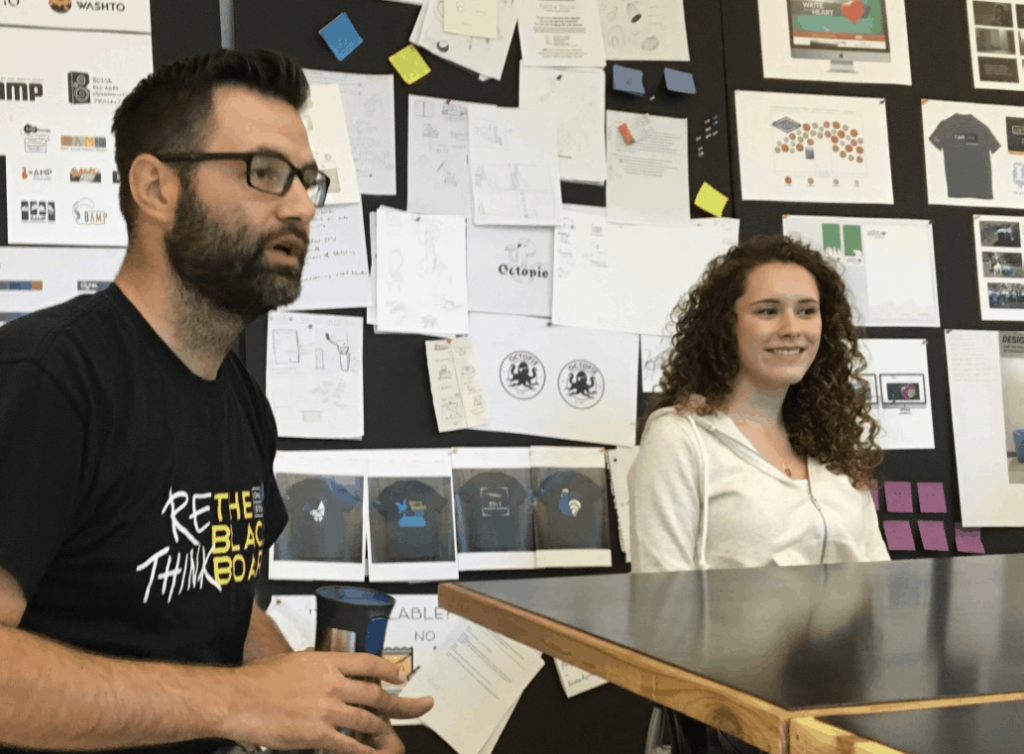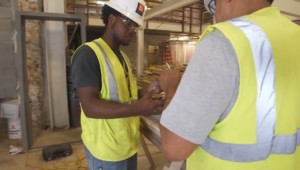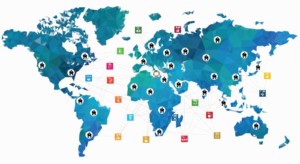Good Enough? Helping Young People Develop a Picture of Good Work

A student-run nonprofit in Boise provides marketing and design services to local businesses. Logo designs may fetch $3,000 or more so the business clients expect professional quality work.
I asked one of the student leaders how they help incoming high school juniors internalize high expectations. He said very crisply, “It’s three factors, feedback from peer leaders, coaches, and, most importantly, from clients.”
One Stone, founded by Teresa and Joel Poppen, provides developmental opportunities for about 200 Treasure Valley teens. A majority of the board are teens. One of three programs, Two Birds, provides design services to local business. Michael Reagan, an experienced designer and team leader, directs the program and is aided by four volunteer coaches from local marketing agencies.
Students in the Two Birds program receive tough feedback from coaches telling them to go back to the drawing board. And after using design thinking and iterating to a better design, they may still have a client reject what seemed to be a great idea. In a safe supportive environment, Two Birds students gain an indelible view of what quality looked like.
Reagan challenges everyone at Two Birds to “work like a boss,” which “creates a culture of initiative, risk-taking, candor, competition, collaboration, and ownership.”
Paly Journalism
The Palo Alto High School journalism program is another great example of student leaders owning high expectations and incorporating them into professional grade products.
Students at Paly lead ten professional quality publications including a newspaper, public affairs journal, arts and culture journal, and yearbook (examples above).
Decades of professional quality publications set a high bar for new student editors.
Esther Wojcicki, who has been a media arts teach at Paly for 34 years, said, “We are preparing kids for a world we cannot even conceptualize.” She added, “They need to think, not follow directions. We need to move forward, take a risk; we have the tools and the skills to change the classroom and make learning exciting and relevant for all students.”
Models of Excellence
Ron Berger, Chief Academic Officer at EL Education, created Models of Excellence, an open-source collection of exemplary high-quality K-12 student work. The goal was to help teachers create a picture of good work.
Models of Excellence offers guidance in text and video for facilitating critique sessions in classrooms, and it also contains short inspiring videos that provide a window into the stories behind certain works.
When learners have a picture of what good looks like, they can co-construct descriptions with teachers making project goals more clear, memorable and effective.
Share Your Learning
After a few years of winning seasons, a school sports program gains a good reputation in the community. Young people work hard to be part of it.
Similarly, when an academic program spins the flywheel of high expectations and makes student work public, students get a picture of what good looks like and work harder to produce good work themselves.
Moving from a compliance “turn it in” culture to a “good work is done here” culture requires making work public through exhibitions and student-led conference.
All of the schools in the Hewlett Foundation sponsored deeper learning network make good work public. The 10 schools in Philadelphia’s Innovation Network stress public work.
Students who know that their work and voices will be seen and heard by their community and peers are infinitely more engaged than those who know their products, ideas and projects are going to die in a pile of papers.
To learn more about public work see ShareYourLearning (@ShareYourLearning, #ShareYourLearning).
For more see:
- Five Schools Sharing Student Learning to Increase Student Engagement
- How Teachers and Leaders Can Promote Personalized Learning
This post is an update of a 2016 blog.
This post was originally published on Forbes and includes mentions of a Getting Smart partner. For a full list of partners, affiliate organizations and all other disclosures please see our Partner page.





0 Comments
Leave a Comment
Your email address will not be published. All fields are required.